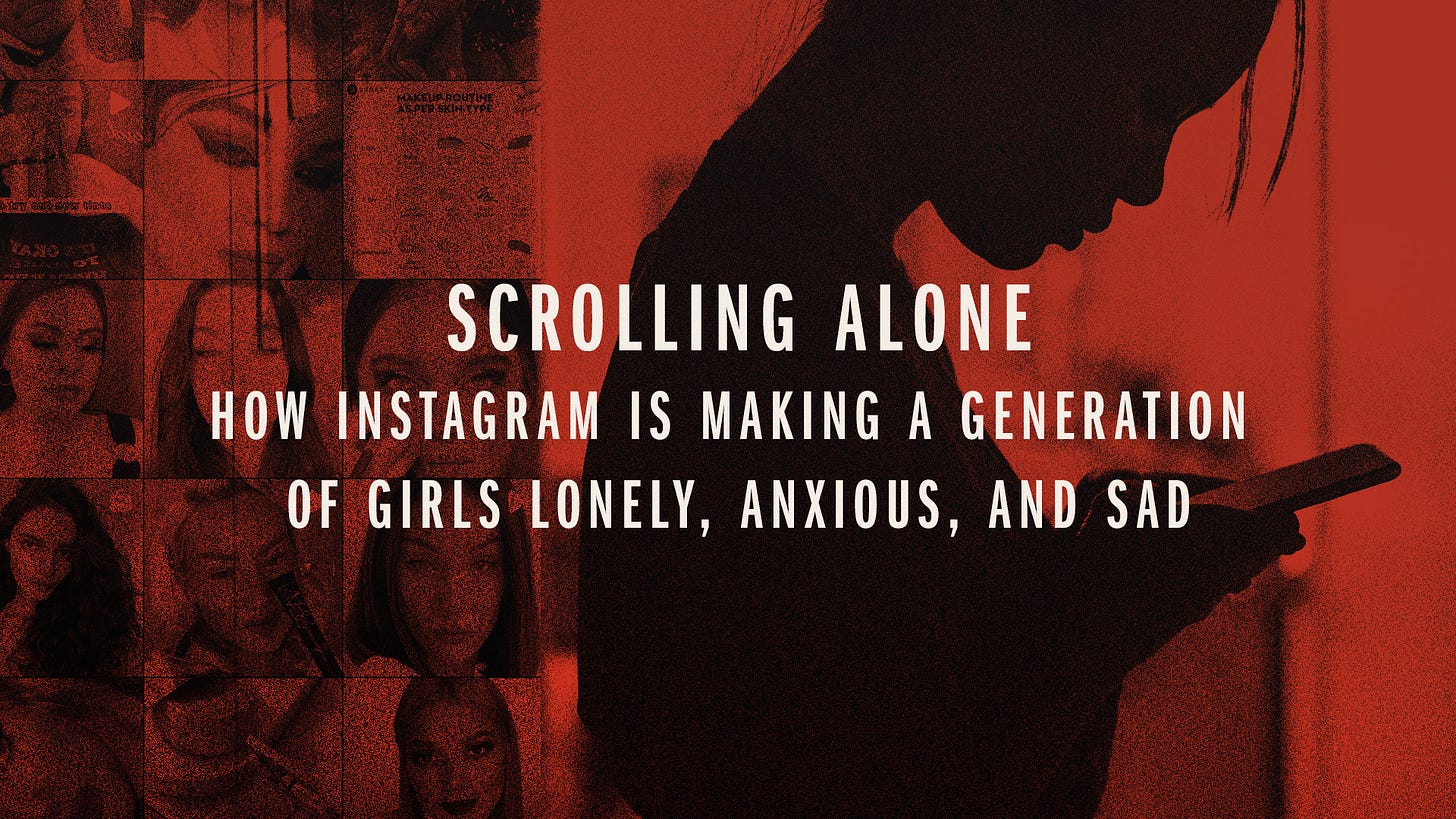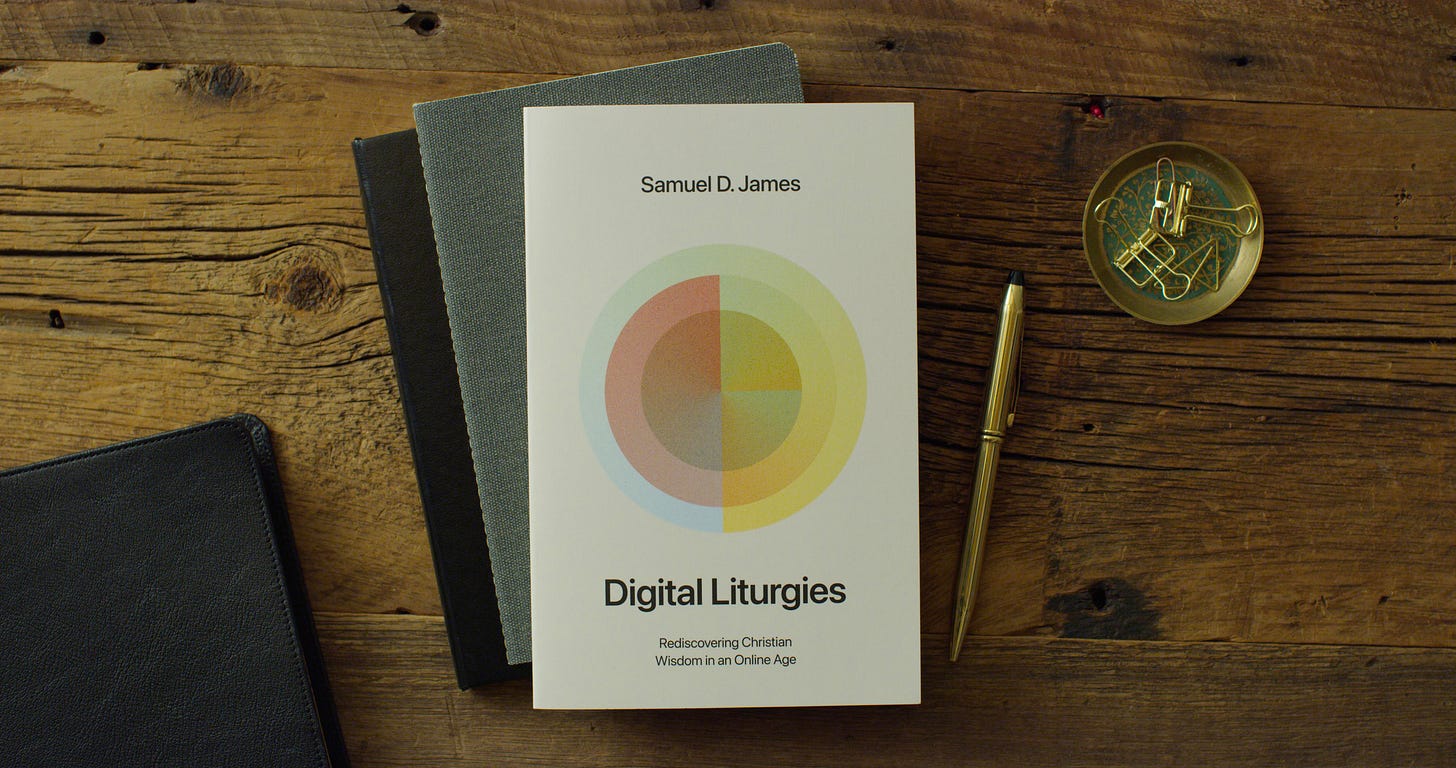Parenting a Teen? Here Are Some Tech Resources
I recently spoke at a church’s youth group. The co-ordinator asked if I could share some resources with the parents, so I wrote them a letter. This is a slightly edited version of that letter.
Dear Parent,
My name is Andrew Noble and I'm writing to provide some thoughts, recommendations, and resources for supporting your teenaged or nearly-teenaged child in the midst of our digital age.
For background, before entering pastoral ministry, I worked in technology for five years, helping to grow an artificial intelligence company called Plum. I left that job to finish my MDiv at Heritage Theological Seminary and now work at Grandview Church. Last year, I launched the What Would Jesus Tech podcast where I've had the opportunity to interview and learn from some of the leading Christian technology thinkers.
People often pit technology against Christianity, but we shouldn't. Whether you work in tech or work for a church, you can work for the glory of God. Jesus himself was considered by others to be a "techie," or tekton in Greek (see Mark 6:3). Technology is not against Christ; it is under him (Eph. 1:22).
However, social media is causing significant harm to our teens and preteens. Jonathan Haidt and his research team reviewed hundreds of studies and have concluded that social media causes anxiety and depression, especially in teenage girls. You can find their research here.
Further, widespread adoption creates a social stigma for teens who do not have social media. Parents are in a difficult position, choosing between the potential of negative mental health outcomes due to allowing their child to have a phone, versus their child feeling like an outsider because of not having access to conversations and trends on Snapchat, WhatsApp, BeReal, TikTok, or some other social media app.
While some parents shrug and wonder, "What's so wrong about social media," it's important to recognize that the experience you have on an app is different than your child's. The algorithms behind the apps tailor each person's experience. Facebook to you is not the same as Facebook for them. And new features are constantly being added to the apps without your knowledge or consent. For example, TikTok, Snapchat, and Instagram frequently release AI selfie filters. One recently gave users the power to see what they look like with "bold glamour" which is one of the ways these apps produce anxiety about one's own physical appearance.

Most messaging platforms, like WhatsApp and SnapChat, include access to sexually immoral images and gifs (animated images). New images are always being added, so knowing how bad these things are can be difficult. Meta, the owner of Instagram and Facebook, has recently released a series of AI chatbots, including one that portrays itself as "A Queer Mom of Two," and tells users who initiate a private message, "You can tell me anything!"
I believe we, as churches, need to take social media's effects seriously. We must protect our young people. But how?
On Tuesday, I’ll share an illustration that I hope will be memorable. A shovel, while seemingly a "neutral" technology tool, changes the person holding it. I'll ask those attending, what does a shovel do to you? With enough use, a shovel will give you calluses on your hands, tear your muscle fibers so that more may grow, and it will change your perspective of the world — the next snowfall or pile of dirt won’t be as intimidating.
Social media changes you in the same way, but calluses develop on your heart, your relationships tear and regrow (perhaps growing weaker rather than stronger), and sunsets and mountains never look the same thanks to the thought of framing them for Instagram likes. The big idea is this: technology changes you.
But as great as I think this illustration is, will it really help limit your kids’ use of social media? Most teens report feeling some level of discomfort or worry about their own phone use. They are more cautious than many millennials. So, I may be preaching to the choir.
When I think back to being a high schooler, I needed more than great illustrations. What would have helped most? What do you think will most help your child deal with their relationship to technology?
For me, I wish I had more space and time when my parents showed interest in me and what I was going through. I don't mean my grades or if I was feeling happy or not. I mean me. I mean listening to whatever I was interested in so that they would get to know me better than they did.1
If my parents had talked to me about why I was listening to secular music or drinking alcohol, they might have found out it was because I wanted to be liked by others at school. That's the truth. I wanted to fit in. I wanted to belong. These underlying factors drove my behaviour. That's why making space for these conversations is so important. Tech misuse is often a symptom rather than the sin itself.
I want to help prepare you for conversations with your children, so I'm sharing my top recommendations and resources. I pray that you will consider each and discuss a couple with other parents so we can all model and teach wisdom in our digital age.
Practical Recommendations
Talk to your child. Listen to them. Teach them.
No smartphone until 14.
Make the most of the parental controls on your kids' phones (for instructions, click here).
No social media until 16.
Model phone wisdom. Put it away when you're with your kids.
Advocate for no smartphones in schools.
Advocate for no smartphones at youth and other church events.
Podcasts/Video Recommendations
Sarah Eekhoff Zylstra produced a fantastic 45-minute podcast episode called Scrolling Alone which focuses on teen girls and their experiences online.
Nathan Sutherland also has a helpful parenting podcast called "Gospel Tech." It has over 150 episodes. Scroll to the ones you're interested in.
There are eight podcast episodes from my What Would Jesus Tech podcast that I'd recommend to either listen to or watch.
Two Netflix movies depicting the negative effects of social media are The Social Dilemma and Bo Burnham: Inside. Neither are "Christian movies." But each depicts the danger of social media through the vivid medium of film.
You could watch or listen to any of the above with your kids and then talk about them afterward. Get their favourite snacks and make a whole experience out of it!
Book Recommendations
If you want a practical "what should I do?" book, I recommend The Wolf in Their Pockets: 13 Ways the Social Internet Threatens the People You Lead (2023) by Chris Martin.
For a gospel-centered unpacking of how the social internet is changing us, I strongly recommend Digital Liturgies: Rediscovering Christian Wisdom in an Online Age (2023) by Samuel James. This is the number one book I'd recommend.
For a biblical unpacking of a theology of technology, I recommend either God, Technology, and the Christian Life (2022) by Tony Reinke, or From the Garden to the City (2022) by John Dyer. I'd lean toward Reinke's if I had to choose, but it's a tad longer.
The book, Social Media Pressure: Finding Peace Alongside Jesus, is specifically written to teenagers to help them think through their own social media use. It was written by a youth pastor named John Perritt.
While technology is a good thing that is part of God's cultural mandate, it also has thorns and thistles as a result of the fall. Technology is not neutral. It forms us, shapes us, and even disciples us.
My prayer is that all of us, children and parents, can grow in spiritual wisdom as we navigate the thorns of tech.
Please send me questions and feedback. I'd be happy to hear from you.
Sincerely,
Andrew Noble
1. Note: I asked parents if they would be okay with me sharing this experience publicly. They agreed it was worth sharing. I love and respect my parents and am thankful for being raised in a home that took church attendance seriously. Since those teenage years, we have grown together in the depth of our conversations and in our walks with God.
Links I Liked
Inside the Chaos at OpenAI | The Atlantic
The mess at OpenAI is reminiscent of the unrestrained endorsement of any kind of progression in technology as told in C.S. Lewis’ That Hideous Strength.
At OpenAI’s 2022 holiday party, held at the California Academy of Sciences, Sutskever led employees in a chant: “Feel the AGI! Feel the AGI!”
Now Available: 50+ Hours of TGC23 Conference Sessions
I went to this conference! It was in Indianapolis and was wonderful. In addition to the great content you can get from all the sessions, here are all the sessions that I personally attended and enjoyed:
Thanks for reading Whatever Is Noble.
Note: I asked my parents if they would be okay with me sharing this experience publicly. They agreed it was worth sharing. I love and respect my parents and am thankful for being raised in a home that took church attendance seriously. Since those teenage years, we have grown together in the depth of our conversations and in our walks with God.






